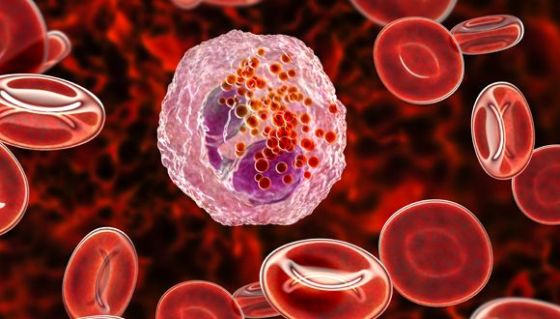
Recruiting ‘Fighting Cells’ to Destroy Tumors
TAU discovery of cell interaction may serve as basis for improved cancer treatments.
Tel Aviv University researchers have found that our body’s natural defenses can help destroy malignant tumors. The team found that white blood cells called ‘eosinophils’ fight cancer in two ways: they can destroy the cancer cells themselves, and also recruit the immune system’s cancer-fighting T-cells – another type of white blood cells key to protecting the body against infection. These findings may contribute to the development of new immunotherapies.
Fighting Cancer from Within
The discovery comes as the rising number of cancer cases every year has contributed to a boom in immunotherapy, a treatment that activates the body’s immune system to fight disease. Compared to traditional techniques like chemotherapy, immunotherapy generally leads to longer protection from cancer and fewer side effects.
“Enhancing the number and power of T-cells is one of the main targets of immunotherapy treatments administered to cancer patients today,” said lead researcher, Prof. Ariel Munitz of TAU’s Department of Microbiology and Clinical Immunology at the Sackler Faculty of Medicine. “We discovered a new interaction that summons large quantities of T-cells to cancer tissues, and our findings may have therapeutic implications. Ultimately, our study may serve as a basis for the development of improved immunotherapeutic medications that employ eosinophils to fight cancer.”
Repurposing Cells’ “Destructive” Qualities
Eosinophils produce powerful destructive proteins originally intended for fighting parasites. However, in the modern Western world, where high levels of hygiene have significantly reduced the risk of many parasites, eosinophils often have a negative impact on humans, inducing phenomena like allergies and asthma.
Considering the destructive power of eosinophils, the researchers decided to test the potential benefits of these white blood cells if turned against cancer cells.
For two main reasons, they decided to focus their study on lung metastases, or cancer that started in another part of the body and spread to the lungs: “First, metastases, and not the primary tumors, are often the main problem in treating cancer. The lungs are a major target for the metastasis of many types of cancer,” said Prof. Munitz. “Second, in a preliminary study we demonstrated that eosinophils gather in tumors developing in mucous tissues like the lungs, and therefore assumed that they would be found in lung metastases as well.”
Summoning Reinforcement
The researchers examined tissue samples taken from breast cancer patients. They found that the eosinophils reach the lungs and penetrate the cancer tissues, where they often release their destructive proteins and summon T-cells for reinforcement. Ultimately, T-cells gather in the affected lungs, slowing the growth of tumors.
Additionally, the researchers found that in the absence of eosinophils, the lung tumors were much larger than those exposed to the white blood cells. These findings led to the conclusion that eosinophils fight cancer effectively.
Along with Prof. Munitz, the study was led by TAU PhD student Sharon Grisaru. The findings were published in the journal Cancer Research, published by the American Association for Cancer Research. The initiative was funded by ICRF (Israel Cancer Research Fund), the Israel Cancer Association, ISF (the Israel Science Foundation) BSF (U.S.-Israel Binational Science Foundation) and GSK.
Featured image: Illustration: Eosinophil, a white blood cell in 3D








